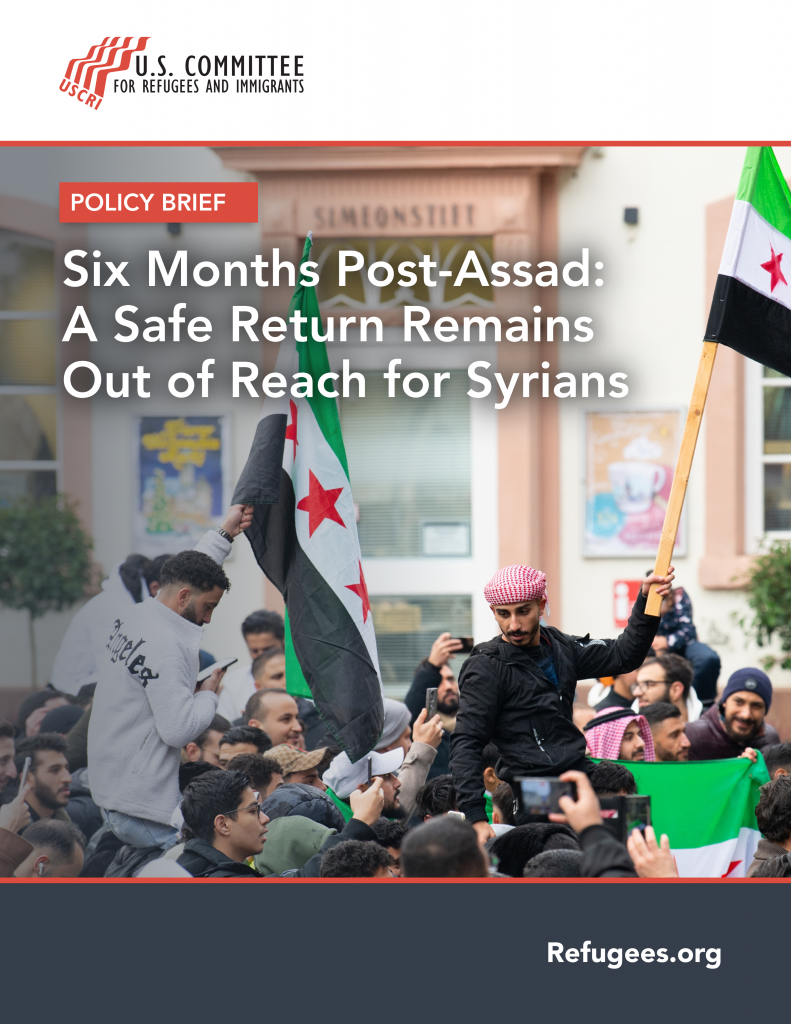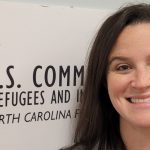
Our Policy and Advocacy
We are a Trusted Source of Evidence-Based Policy and Advocacy Expertise.
Support USCRI’s Policy & Advocacy Work
Asylum
As of May 2024, more than 120 million people have been forcibly displaced worldwide. The Policy and Advocacy Division brings expertise from direct experience working with forced and voluntary migrants. In addition, we synthesize insights from USCRI’s programs with unaccompanied children, legal services, refugee resettlement, and victims of human trafficking to identify and create solutions for individuals whose protection needs fall outside legal definitions of refugee or asylee.
Read Our Latest Posts on Asylum
Refugees
Thousands of refugee and immigrant children come to the United States alone or with their families each year, many having fled life-threatening dangers in their countries of origin. The Policy and Advocacy Division brings policy expertise to advocacy at the federal level, and translates what we see on the ground as a direct provider of services to unaccompanied child migrants through our shelter, implements what . In particular, USCRI engages in developing improved policy and advocating for vulnerable children in migration in the following areas: expanding legal protection for unaccompanied children, improving child welfare during and after government custody, extending post-release services and enlarging the number of child advocates, expanding of the Unaccompanied Refugee Minor (URM) program, enhancing screening for trafficking at U.S. borders, and increasing targeted programming for child migrants in Central America, among others.
Read Our Latest Posts on Refugees
Trafficking in Persons
In the United States, the scope of both domestic and foreign-national human trafficking is significant. Although the exact figures are unknown, most estimates converge on tens of thousands to low hundreds of thousands of new cases annually. As the national grantee of the Trafficking Victim Assistance Program (TVAP), USCRI is in a unique position to view trafficking issues across the United States and instigate policy changes based on the realities seen through the eyes of survivors. USCRI advocates for the following policy changes in the area of trafficking in persons: removing barriers in the certification process for survivors to receive benefits and services, an expedited visa process and work authorization for survivors, and increased funding for survivor services, among others.
Read Our Latest Posts on Trafficking
Child Migration
Thousands of refugee and immigrant children come to the United States alone or with their families each year, many having fled life-threatening dangers in their countries of origin. The Policy and Advocacy Division brings policy expertise to advocacy at the federal level, and translates what we see on the ground as a direct provider of services to unaccompanied child migrants through our shelter, implements what . In particular, USCRI engages in developing improved policy and advocating for vulnerable children in migration in the following areas: expanding legal protection for unaccompanied children, improving child welfare during and after government custody, extending post-release services and enlarging the number of child advocates, expanding of the Unaccompanied Refugee Minor (URM) program, enhancing screening for trafficking at U.S. borders, and increasing targeted programming for child migrants in Central America, among others.
Read Our Latest Posts on Child Migration
Climate Migration
In recent years, the changing world environment has exacerbated migration pressures worldwide. With global climate change, desertification, and rising oceans, the concept of “environmental refugees” has gained prominence in policy discussions and public consciousness. Environmental refugees are those migrants forced to leave their homes due to environmental disruption that jeopardizes their existence and quality of life. As a signing member of InterAction’s Global Compact on Environmental Refugees, USCRI’s Policy and Advocacy Division develops innovative policy around this more novel area of environmental-refugee advocacy to ensure that these vulnerable refugees access the rights afforded to them under international law.

























































